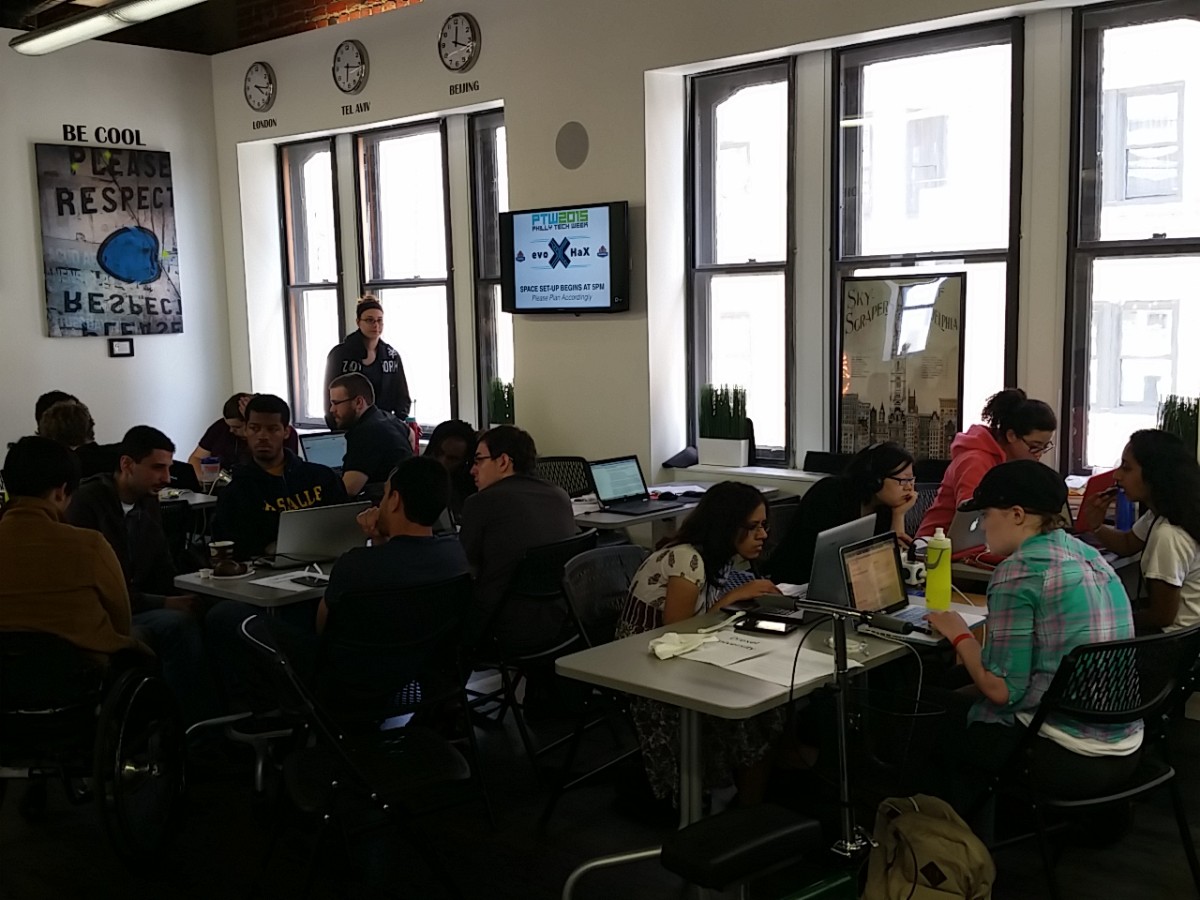Students from Drexel University, St. Joseph’s University, Swarthmore College, West Chester University and LaSalle University participated in a web accessibility hackathon this past weekend for people with disabilities.
“I don’t think a hackathon of this sort has been done before,” said EvoXLabs founder Ather Sharif, who we profiled last month.
https://youtu.be/XxSpc-iKj8g
The evoHaX hackathon, which began Friday evening and concluded Sunday afternoon, was organized by EvoXLabs as part of Philly Tech Week.
The teams gathered at Benjamin’s Desk on Friday to listen to five speakers discuss accessibility concerns for the blind, deaf and those with aphasia. EvoXLabs then brought in three subject-matter experts for each condition to help teams better understand web accessibility concerns.
Many of those concerns seem to surround a lack of text, stemming from content creators’ reliance on visual and audio content. Whereas the internet used to be extremely textual, it would seem those days are over.
“We’ve gone from perfectly accessible to perfectly inaccessible,” said Neil McDevitt, executive director of the Deaf-Hearing Communication Centre. McDevitt said one of the largest concerns for the deaf is the quality of YouTube captions. While the site has a built-in component that generates captions, McDevitt said they aren’t nearly accurate enough.
And emerging technologies have provided a bevy of accessibility challenges for the visually impaired. For example, how are blind people supposed to build a website through Squarespace? “The whole click and drag thing is inaccessible,” said Walei Sabry, housing coordinator at New York’s Mayor’s Office for People with Disabilities.
Like McDevitt, Sabry said content creators need to develop strong options for people with disabilities. “I’d like to see maps translated into text data.”
EvoXLabs’ Sharif hopes evoHaX will be a crucial first step in raising awareness about web accessibility.
“I’m not sure why this hasn’t happened before,” he said. “Hopefully, people will keep picking up on it.”
Here are the projects that came out of the hackathon (with a major hat-tip to evoHaX speaker and front-end developer LeeAnn Kinney).
###
Drexel University (1st Place)
https://twitter.com/_leekinney/status/589891453586952192
Swarthmore College
https://twitter.com/_leekinney/status/589900569046814720
West Chester University
https://twitter.com/_leekinney/status/589880520814780416
St. Joseph’s University
https://twitter.com/_leekinney/status/589896752674828288
LaSalle University
https://twitter.com/_leekinney/status/589901281889755136







